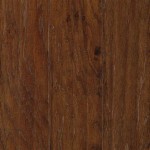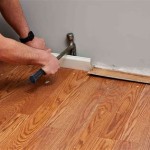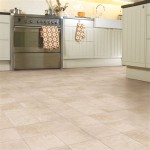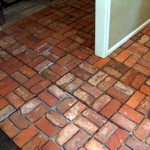Laminate Flooring for Kitchens: Essential Considerations
Installing laminate flooring in your kitchen after cabinet installation can transform the space, adding both style and functionality. However, there are certain essential aspects to consider to ensure a successful and long-lasting installation.
1. Choose a Moisture-Resistant Option
Kitchens are prone to moisture due to cooking and cleaning activities. Therefore, selecting a laminate flooring product designed to withstand moisture is crucial. Look for options labeled "water-resistant" or "waterproof" to prevent warping, swelling, or other damage from moisture exposure.
2. Consider Underlayment
Installing an underlayment beneath the laminate flooring provides additional cushioning and moisture protection. It helps reduce sound transmission, improves comfort underfoot, and compensates for any minor subfloor imperfections. Choose an underlayment that is compatible with your laminate flooring and the existing subfloor.
3. Plan for Transitions
Where the laminate flooring meets other flooring surfaces, such as tile or hardwood, you will need to install transitions. These transitions provide a smooth and professional-looking transition between different flooring materials and prevent moisture from seeping under the laminate flooring.
4. Pay Attention to Gaps
Laminate flooring requires expansion gaps around the perimeter of the room and around fixed objects like cabinets and appliances. These gaps allow the flooring to expand and contract with changes in temperature and humidity. Failing to provide adequate gaps can lead to buckling or damage to the flooring.
5. Protect the Floor from Appliances
Heavy appliances like stoves and refrigerators can damage laminate flooring if not properly supported. Place protective pads or mats under appliances to prevent scratches, indentations, or damage from dropped items. Regular cleaning and maintenance will also help preserve the beauty and longevity of your laminate flooring.
6. Choose a Durable Finish
Laminate flooring is available in a variety of finishes, each with its own level of durability. For kitchens, it is recommended to select a finish with a higher AC rating, which indicates its resistance to wear and tear. This will help protect the flooring from everyday traffic and spills.
7. Professional Installation
While laminate flooring can be installed as a DIY project, it is advisable to hire a professional installer for the best results. They have the experience and expertise to ensure a proper installation, including proper moisture protection, transitions, and expansion gaps.
Conclusion
By considering these essential aspects, you can choose and install laminate flooring in your kitchen that is both stylish and durable. Proper moisture protection, underlayment selection, transitions, and gaps will ensure a long-lasting and beautiful flooring solution that enhances the functionality and aesthetic appeal of your kitchen.

Do You Install Floating Floor Under Cabinets Wood Flooring

Do You Install Floating Floor Under Cabinets Wood Flooring

Do You Install Floating Floor Under Cabinets Wood Flooring

Should I Install My Flooring Before Or After New Cabinets

Do You Install Flooring Before Cabinets Best Practices Reallyfloors America S Est Hardwood

Do You Install Floating Floor Under Cabinets Wood Flooring

Before Or After Cabinet Installation Four Considerations To Help Finalizing Your Flooring Kraftmaid

Why It S Better To Install Kitchen Floors Before Cabinets Domain

Can You Replace Kitchen Flooring Without Removing Cabinets

Iheart Organizing Do It Yourself Floating Laminate Floor Installation
Related Posts








